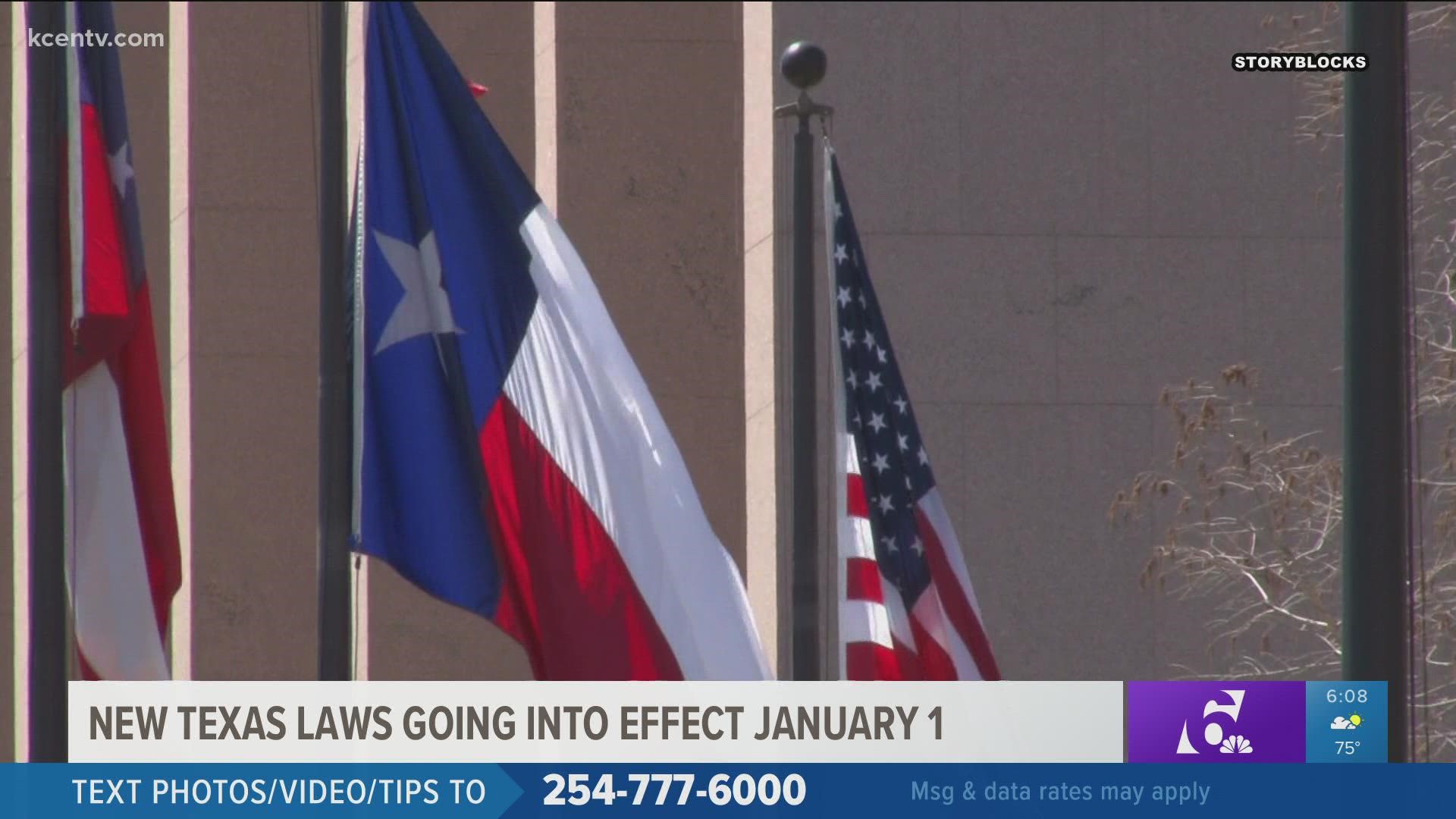TEXAS, USA — As you ring in the new year 23 new bills will become law in Texas starting January 1.
There are a few affecting veterans including Senate Bill 792 and Senate Bill 794.
SB 792
This law will require anyone parking in a disabled parking space to have a license plate or a disabled parking placard. This means disabled veterans will now have to hang their Americans with disabilities act placard in their vehicle in order to park in an ADA spot instead of relying on their disabled veteran license plate. The Department of Motor Vehicles will also require every recipient who applies for an ADA placard to get a doctor's signature on the application.
SB 794
This law will exempt homestead taxes for all veterans who are classified by the Department of Veterans Affairs as 100% disabled.
SB 911
This law will allow food service establishments that hold mixed beverage permits to be reclassified as restaurants if alcohol sales are 60% or less of the establishment's sales.
HB 115
This law will exempt taxes from property owned by certain charitable organizations that provide housing and other assistance to people experiencing homelessness. To qualify, the organization must have been in existence for at least 20 years if it's located within a county; two years if located in a municipality; and must provide permanent housing to people experiencing homelessness.
HB 1197
This law will increase the number of years that a church or religious organization can be exempted from ad valorem taxation on church construction land from six to 10 years if the land is attached to the land that houses the organization's primary place of worship.
HB 2535
This law will forbid tax assessors from including personal chicken coops or rabbit pens from being included in the value of a home.
HB 3961
This law will require the websites for certain long-term care facilities to post information about the office of the state long-term care ombudsman, a position that "advocates for resident rights and helps protect the quality of life and quality of care of anybody who lives in a nursing home or an assisted living facility," according to Texas Health and Human Services.

